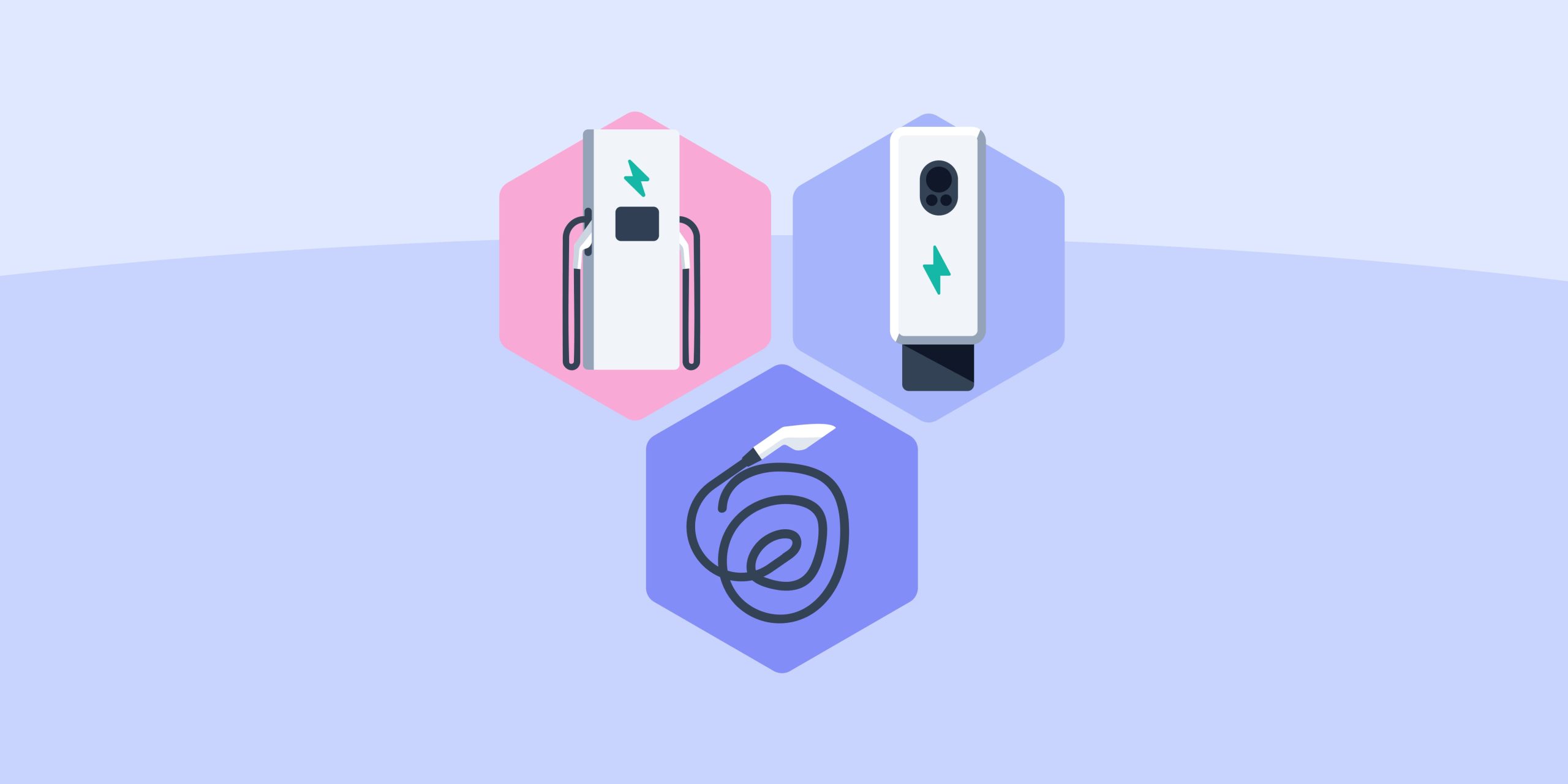Can you charge your electric car at any charging point?
17 October 2025 - 3 minutes to read
In theory, yes… but in practice, it’s a different story! Not all connectors or power levels are compatible with every vehicle, so randomly choosing a charging point isn’t always a good idea.
We’ll explain why it’s essential to choose a charging point that is compatible with your electric car, both in terms of connectors and power rating, and how to make the most of the various access methods to charge with peace of mind 😌.
Highlights from the article:
- Choose the right charging cable: avoid unnecessary power loss.
- Use a power level suited to your vehicle: not too high, not too low.
- Easily find a compatible charging point: using the Chargemap app and its filters.
- Charge with peace of mind: using the right tools and knowing your vehicle.
Understanding the compatibility of charging points and electric vehicles
Connector standards: Type 2, CCS, CHAdeMO…
Not all electric vehicles plug in the same way. In Europe, the Type 2 connector has become the standard for AC (alternating current) charging points, while the CCS Combo connector dominates DC rapid charging. The CHAdeMO connector, mostly used by certain Asian models, is gradually disappearing.
👉 Before charging, always make sure to check your car’s connector AND the one on the charging point.
The role of the cable in the charging process: a link often overlooked
We often talk about the charging point and the car, but the charging cable also plays a crucial role in terms of compatibility and performance.
The cable you use to connect your car to a charging point must be able to cope with the power being delivered. Otherwise, it may limit the charging power, even if both the charging point and your vehicle are able to handle more.
👉 Concrete example:
Your car can accept 11kW and the charging point also delivers 11kW. But if your cable is limited to 7.4kW, charging will be capped at 7.4kW. The actual power is determined by the weakest link among the three elements (car, charging point, and cable).
Cable types: what to watch out for
- Connector type: in Europe, the Type 2 cable is standard. Make sure this is the one you have (or that the charging point provides one).
- Maximum supported power: usually indicated on the cable or in its specifications (for example: 32A three-phase for 22kW).
- Length: some cables that are too short can make charging impossible in certain parking configurations.
Learn more: Which plugs should you choose to charge your electric car?
Why aren’t all charging points suitable for your car?
Accepted charging power: a key criterion
Every electric vehicle has a maximum charging power it can accept, expressed in kilowatts (kW). This limit is set by your car’s onboard charger, and is independent of the charging point’s power rating.
Also read: How does EV charging power affect charging time?
👉 Concrete example:
If you plug a car that can accept 7.4kW (like the Peugeot e-208) into a charging point delivering 22kW, the car will only charge at 7.4kW. The charging point is effectively “capped” by the vehicle’s limit.
Risks and limitations of a charging point that is too powerful (or too slow)
- Too powerful? No direct danger: the car will only draw the energy it can handle.
- However, you may sometimes pay a higher rate for power you’re not fully using.
Frequent rapid charging can also wear the battery faster. It’s better to alternate between rapid and slow charging, as explained in our article on rapid charging.
- Too slow? You’ll unnecessarily extend your charging time. A 2.3kW charging point can take over 20 hours to charge a 50kWh battery.
Ideally, you should choose a charging point that matches your car’s charging capacity, for a good balance between speed, cost, and efficiency.
How to know if a charging point is compatible with your electric car
The Chargemap App: filters, compatibility, user reviews
With the Chargemap app, you can easily find the charging points best suited to your vehicle using the “Connectors” and “Charging power” filters.
You can also read reviews from users who have already charged at a specific charging point, check the applicable rates, and more. This helps you avoid unpleasant surprises and saves valuable time, especially on long journeys.
Find the charging points best suited to your electric car.
Download the Chargemap app for free.
The role of a universal charging card
A multi-network electric charging card, such as the Chargemap Pass, gives you access to over 800,000 charging points across 19 European countries on more than 1,800 compatible networks.
Good to know: Not all charging points listed in the Chargemap app are compatible with the Chargemap Pass. Always check the “Chargemap Pass” compatibility on the charging point or by enabling the dedicated filter.
Key takeaways for charging anywhere with peace of mind
Using a high-power charging point with a vehicle that has a low charging capacity won’t save you time – and could even cost you more unnecessarily. Conversely, a charging point that is too slow can make your charging time frustratingly long.
In short: knowing your car’s maximum charging power allows you to choose the most efficient charging points for your needs.




Karttı nasıl kullanacağımı anlatan bır büroşir bulamadım
It was a real pleasure to find that my Chargemap pass got me out of trouble in Callela Spain. Seemless and timely, well done!